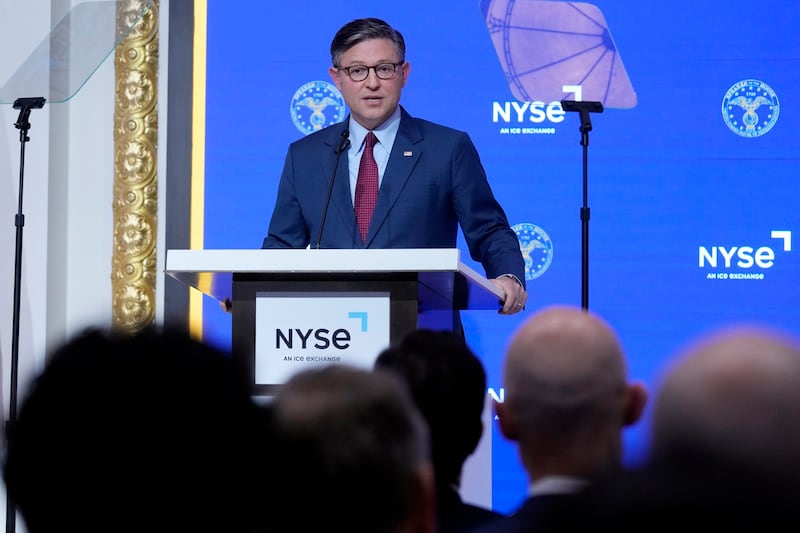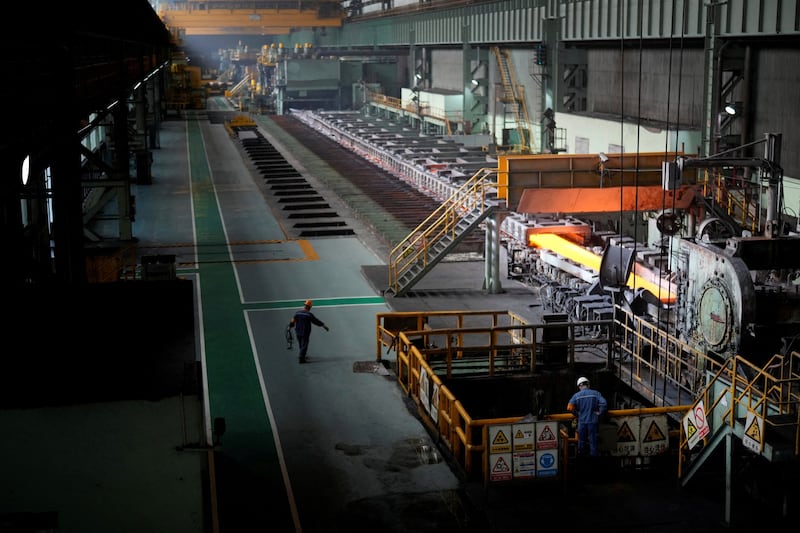The United States has banned imports from two more Chinese companies suspected of using Uyghurs for forced labor, bringing the number of entities on the blacklist to 75.
Wednesday’s announcement by the Department of Homeland Security is the latest under the 2021 Uyghur Forced Labor Prevention Act.
The UFLPA aims to eradicate forced labor and hold China accountable for its genocide and crimes against humanity against the mostly Muslim Uyghurs and other minority groups in the far western Xinjiang Uyghur Autonomous Region, the department said in a statement.
Starting Oct. 3, goods produced by Baowu Group Xinjiang Bayi Iron and Steel Co., Ltd. and Changzhou Guanghui Food Ingredients Co., Ltd. will be prohibited from entering the United States, it said.
This is the first time a steelmaker and producer of aspartame, an artificial sweetener, have been added to the UFLPA Entity List, the department said. Other companies on the list include those making apparel, plastics, chemicals, household appliances.
De minimis ‘loophole’
The move came after U.S. House Speaker Mike Johnson pledged in a speech at the New York Stock Exchange on Tuesday that Congress will continue to “take on Chinese companies that use forced labor and dodge tariffs through the de minimis exception.”

Last month, President Joe Biden proposed an executive order that would restrict the number of imports from China that can avoid customs checks under the "de minimis" exemption that critics have said is a "loophole" allowing goods made with Uyghur slave labor to be sold to Americans.
The “de minimis” exemption allows goods worth less than $800 to avoid tariffs and many of the usual customs controls when being sold into the United States.
The restriction would affect a wide swathe of imports, including most textiles such as the clothes sold directly to American consumers by Chinese “fast fashion” retailers Temu and Shein.
One of the two banned companies, Baowu Group Xinjiang Bayi Iron and Steel Co., based in Urumqi, is engaged in iron ore mining and steel manufacturing. Its main products include rebar, hot-rolled coils, and medium and thick steel plates, according to the DHS statement.

“The United States government has reasonable cause to believe, based on specific and articulable information, that Xinjiang Bayi works with the government of the XUAR to recruit, transport, transfer, harbor, or receive Uyghurs, Kazakhs, Kyrgyz, or members of other persecuted groups out of the Xinjiang Uyghur Autonomous Region,” the statement said.
The other company, Changzhou Guanghui Food Ingredients Co., headquartered in Jiangsu, China, is believed to use ingredients sourced out of XUAR, it said.
Ilshat Hassan Kokbore, deputy executive chairman of the World Uyghur Congress advocacy group, said more needed to be done.
“To stop the Chinese government from dumping their forced labor products into the U.S., we need to do more,” he said.
“The DHS has done a great job in preventing the Uyghur forced labor products from coming into the U.S. by enforcing the UFLPA Act,” he said. “Adding another two Chinese companies to the list is a clear signal to the PRC that the U.S. won’t tolerate violations of human rights.”
